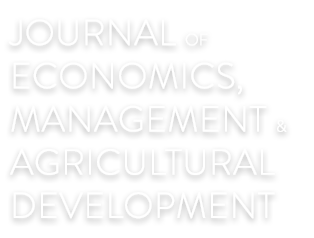Authors
ABSTRACT
This study examines the value chain of Anguillid eels in Cagayan, Philippines, focusing on value addition, cost distribution, and revenue among eel gatherers, mini traders, and consolidators across two chains. Chain 1, which caters to domestic and export markets, involves gatherers selling wild-caught eels to mini traders who consolidate smaller quantities before transferring them to consolidators for processing and export. Chain 2, which serves solely domestic markets, provides an alternative with gatherers either selling to mini traders or directly supplying consolidators, bypassing intermediaries. A financial cost-returns analysis quantifies each actor’s contributions and cost shares. In Chain 1, consolidators contribute the highest value addition (55.3%) while incurring substantial costs (41.2%), whereas gatherers bear the highest cost share (48.7%) but add only 20.2% of the value. Chain 2 follows similar trends but offers gatherers directly linked to consolidators with slightly improved outcomes. The findings underscore the need for equitable policies to enhance sustainability and inclusivity in the value chain.

